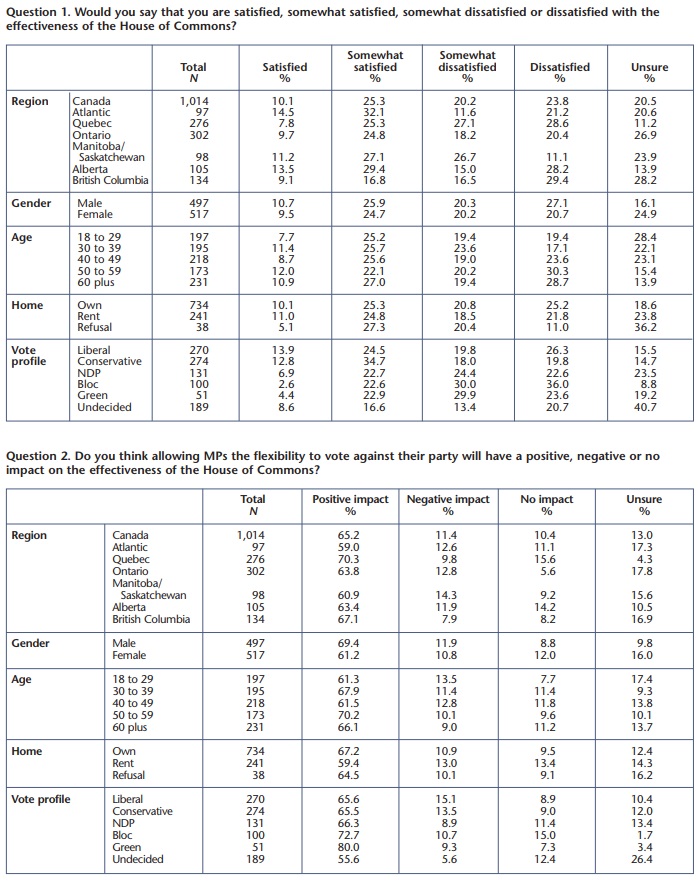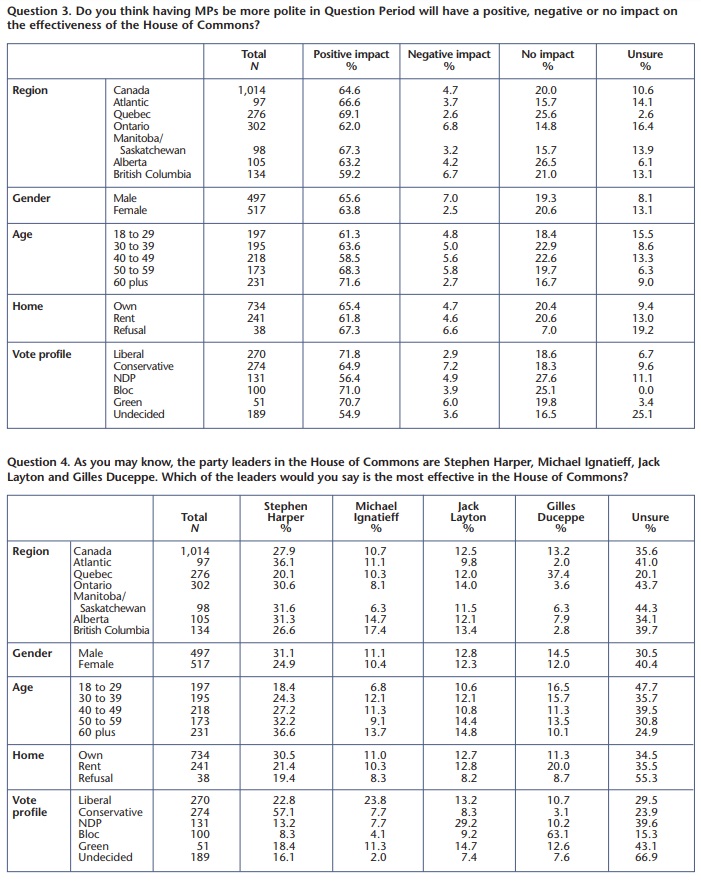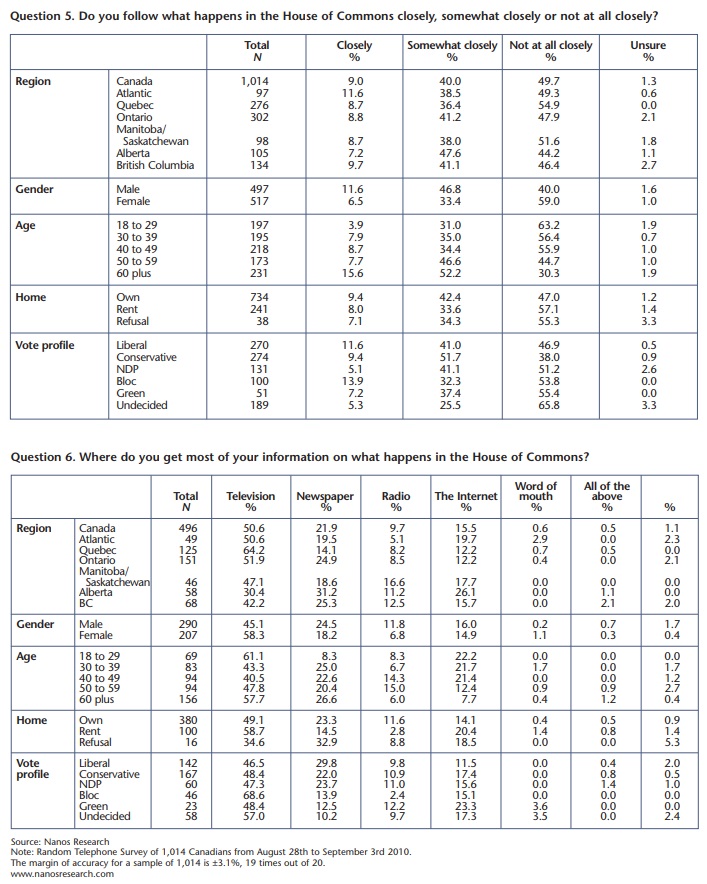
The latest Nanos-Policy Options poll shows that Canadians are more likely to be dissatisfied than satisfied with the effectiveness of the House of Commons. Five years ago, minority government was heralded by some as an opportunity to mitigate the divisions between the parties in a fashion similar to the Pearson era. However, with Canada’s third minority government and no majority breakthrough currently in sight, the appetite for minority government may be waning.
The research did suggest that Canadians would embrace changes to the House of Commons. An overwhelming majority thinks the House of Commons would be more effective if MPs had more free votes in the House and were more polite in Question Period.
These are the principal findings of the latest Nanos Research poll for Policy Options, part of this issue’s thematic, “Making Parliament Work,” and posted on the IRPP’s Web site as an Online Extra.
When we asked Canadians how satisfied they were with the effectiveness of the House, only 10.1 percent said they were satisfied, while another 23.8 percent said they were dissatisfied (question 1). The rest were either somewhat satisfied, somewhat dissatisfied or unsure on the effectiveness of the House. Of note, people over 50 years of age and those from BC, Quebec and Alberta were more likely to be dissatisfied compared with other Canadians.
In terms of possibly addressing how the House could be changed, a number of proposals were tested.
Two Canadians in three (65.2 percent) favour more free votes, while only two in 10 think the impact of free votes would be negative to neutral (question 2).
Similarly, nearly two Canadians in three, 64.6 percent, thought improved behaviour in Question Period would have a positive impact on Parliament, while fewer than one in 20 respondents, only 4.7 percent, thought it would have a negative impact (question 3). Another 20 percent said better behaviour would have no impact on the effectiveness of the House of Commons, while 10.6 percent were unsure.
There is no doubt that the bad behaviour of Question Period leaves a negative impression on Canadians, and undermines the perception of the effectiveness of the House of Commons.
But when we asked who was the most effective leader in the House, the answer came back loud and clear — Stephen Harper (question 4).
The Prime Minister was judged to be the most effective leader in the House by 27.9 percent of Canadians, while Opposition Leader Michael Ignatieff was seen as the best in the Commons by only 10.7 percent, trailing NDP leader Jack Layton at 12.5 percent. Of note, one-third, or 35.6 percent, were unsure which of the leaders was the most effective.
Bloc Quebecois leader Gilles Duceppe was in second place at 13.2 percent, pulled up by his strong score of 37.4 percent in Quebec, where Harper was rated best in the House by 20.1 percent, Layton was at 12.5 percent, with Ignatieff at only 10.7 percent.
Nationally, even among voters intending to vote Liberal, Ignatieff registered a score similar to Harper’s as best in the House by a margin of only one point, 23.8 percent to 22.8 percent. By contrast, among Conservative voters, Harper was chosen most effective in the House by 57.1 percent, as against 7.7 percent who chose Ignatieff.
In terms of focus and where Canadians learn about the activities of the House of Commons, one of every two Canadians (49.7 percent) said they did not follow closely at all what happens in the House of Commons, while only one in ten (9 percent) said they follow the House of Commons closely (question 5).
When we asked Canadians where they got most of their information on the House of Commons, a clear majority, 50.6 percent, said television was their primary source. Another 21.9 percent said newspapers were their main source of information, while 9.7 percent said it was radio. But 15.5 percent said the Internet was the source of most of their information on the House (question 6).
Although back in 2004 minority government and the calls from politicians to make our political discourse more civil might have been seen as a break from the past, today Canadians are tuned-out, turned-off and skeptical of the effectiveness of the House of Commons. On the positive side of the ledger, there is a continued interest in changing the tone and giving MPs greater flexibility through free votes.
Regardless, the research should give parliamentarians and our political leaders pause.
Photo: Shutterstock












